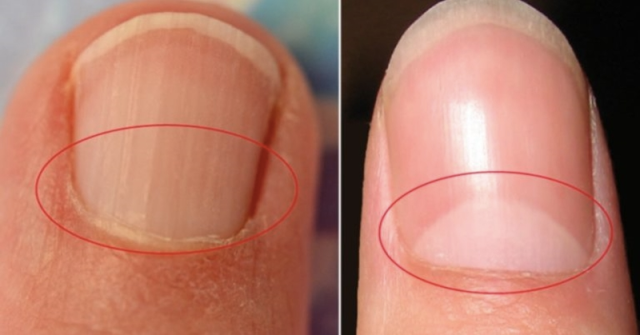Most people have a small, whitish, half-moon shape at the base of each fingernail where the nail attaches to the cuticle and finger. This feature is known as the lunula. However, some individuals may not have a visible lunula, which can indicate potential vitamin deficiencies or serious medical conditions.
Nails grow from a pocket under the skin called the matrix. The matrix produces new cells, which then come together and push out of the skin, forming the nail. The lunula, which means “little moon” in Latin, is the visible part of the nail’s root. It appears white because the fifth basal layer of the epidermis hides the underlying blood vessels.
Typically, the lunula takes up about one-fifth of the nail and is most prominent on the thumb. Experts suggest that the whiter the lunula, the healthier the person. The development and visibility of the lunula can be influenced by various factors, including nutrition, physical health, and environmental conditions. When these factors are not optimal, the lunula may fade, shrink, or disappear altogether.
The lunula is highly sensitive, and changes in its appearance can signal certain health issues. Here are some indications based on the reduction or absence of the lunula:
- Thumb: If there is no lunula on the thumb, it might indicate a psychological disorder.
- Little Finger: The absence of a lunula on the little finger can suggest issues with the intestines, pancreas, liver, or reproductive system in women.
- Index Finger: A smaller or missing lunula on the index finger may be a sign of intestinal problems.
- Middle Finger: If the lunula on the middle finger has reduced in size, it might indicate blood pressure issues.
- Ring Finger: A missing or reduced lunula on the ring finger could be a sign of thyroid gland problems.
The lunula’s appearance can provide valuable insights into one’s health, emphasizing the importance of paying attention to even small changes in our bodies.
4o
Share via:


